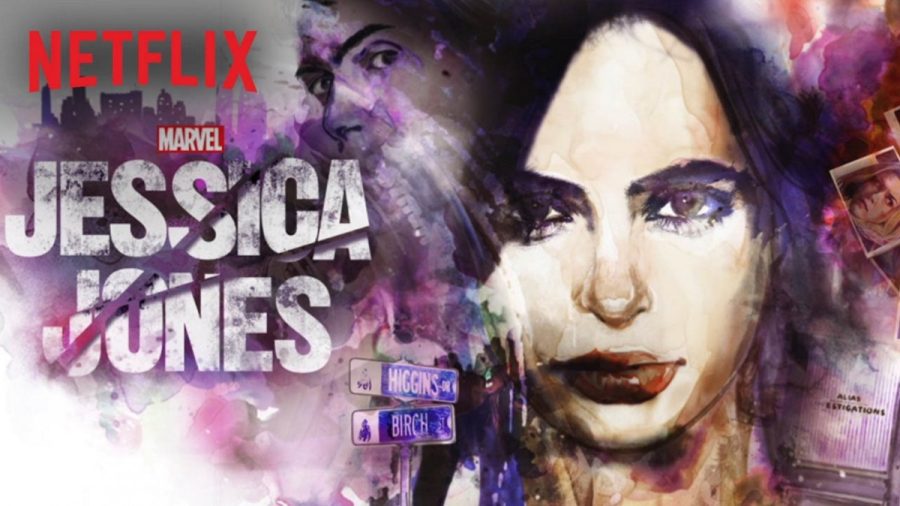If you’re not a white straight man (and a handsome, wealthy and athletic one at that), it’s hard to look at the recent and continuing slew of Marvel films and feel represented or even acknowledged. The blockbuster smashes seem determined to cast women and minorities as love interests or sidekicks (see Pepper Potts and War Machine in the “Iron Man” trilogy).
Despite Black Widow’s prominence as a member of the Avengers and her popularity, she is romantically linked to the male characters throughout her appearances, and has not been given her own standalone film. It’s disappointing to say the least. Especially because fans of superhero comics and films come from all backgrounds, sexualities and genders.
That’s where Netflix comes in. With the recent release of “Luke Cage,” Netflix is now home to three excellent original Marvel superhero series that feel closer in quality to an HBO Emmy winning drama than an overstuffed summer blockbuster. Best of all, each show embraces diversity. In a departure from the fun, kid friendly, light tone of the Marvel Cinematic Universe (with the exception of “Deadpool”), these shows take a dark, gritty and more realistic tone, and are better for it.
“Luke Cage,” which just dropped its strong slow-burning first season at the end of September, features a black lead and a cast comprised primarily of people of color. Mike Colter plays the ultra-strong and indestructible title character, formerly a supporting character on “Jessica Jones.” But his strength isn’t merely physical, he’s smart, warm, heroic and sensitive. The show is a far cry from its blaxploitation comic book roots. Taking place in Harlem, the show embraces the African American community and history there. In the midst of the Black Lives movement a series like this, which features its bulletproof hero being shot at in a hoodie without breaking a stride, feels particularly relevant and necessary.
“I can’t imagine anything a black man would want to be more right now than bulletproof,” Colter said in an interview with The Huffington Post. “It’s a nod to Trayvon, no question. Trayvon Martin and people like him. People like Jordan Davis, a kid who was shot because of the perception that he was a danger. When you’re a black man in a hoodie all of a sudden you’re a criminal.”
“Jessica Jones” I would argue is the best of the bunch in terms of quality. Led by a fantastic and fearless performance from Krysten Ritter, the neo-noir series is a captivating and excellent character piece that highlights its complicated, strong successful and very adult female characters (including openly queer characters). It also deals expertly with the themes of trauma and assault. Despite the superpowers involved, Kilgrave’s (David Tennant) torment and abuse of Jessica reads an authentic depiction of an abusive relationship, emotionally and physically. She is presented as a survivor and grapples with and ultimately overcomes her assault in a way that feels truthful.
Impressively, it was just announced that the show is actively taking steps to reflect that same gender diversity behind the scenes as well. As reported by Variety’s Maureen Ryan, “Jessica Jones” showrunner and executive producer Melissa Rosenberg has said that all 13 episodes of season two will be directed by women, welcome news especially considering that women directed just 17.1 percent of television episodes in the 2015-2016 season, according to the Directors Guild of America.
The first to premiere and most traditionally “superhero” of Netflix’s Marvel shows is “Daredevil.” Here our hero actually wears a costume. Though not seemingly as diverse as “Jessica Jones” or “Luke Cage,” the show is equally engaging and thrilling. And it’s main character is a man who is blind.
People with disabilities are sadly very under-represented in both television and film. GLAAD found in their 2015 “Where We Are on TV Report” that only 0.9 percent of regular characters on broadcast programming were shown as living with a disability. The fact that Matt Murdock’s (Charlie Cox) handicap not only doesn’t interfere with his job, but ultimately becomes the very thing that makes him special and powerful is very significant indeed.
With “Captain Marvel” and “Black Panther” announced, Marvel cinema now has a chance to step up and portray women and people of color in heroic leading roles. Let’s hope they look to Netflix’s series for guidance on how to do so well and incorporate a diverse set of writers and directors.








